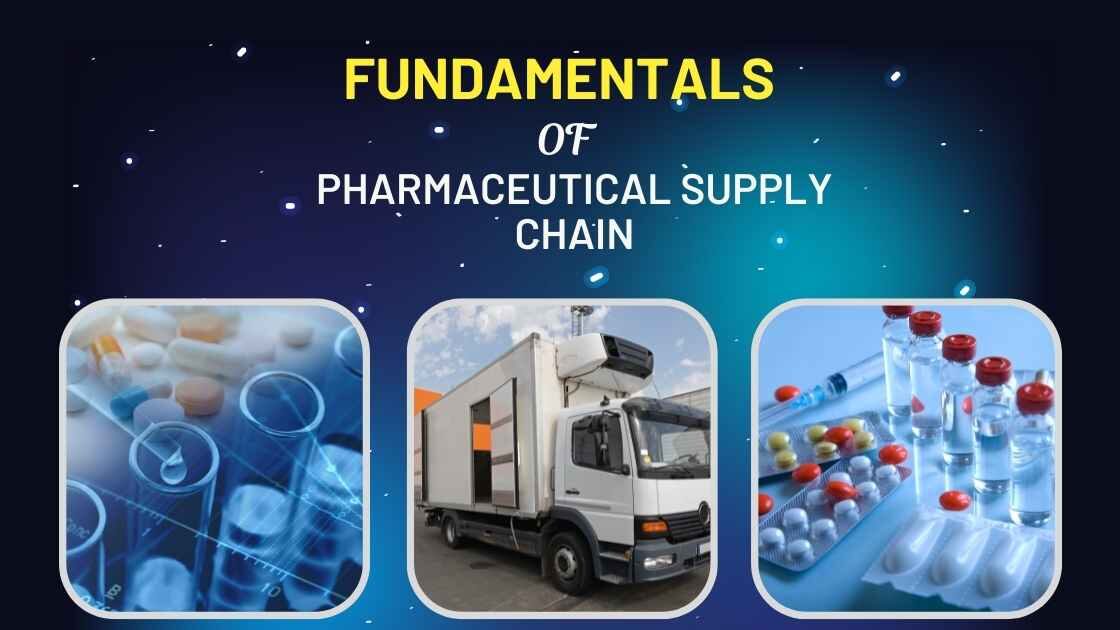The pharmaceutical supply chain is a complex system that involves many different players, from manufacturers to distributors to pharmacies. The main goal of the pharmaceutical supply chain is to get drugs from the point of manufacture to the point of sale or use.
Cold chain logistics refers to the process of managing the temperature-controlled transportation and storage of pharmaceutical products. There are many challenges associated with cold chain logistics, such as maintaining proper temperature control, preventing contamination, and ensuring timely delivery. Cold chain logistics requires a high level of coordination and communication between all parties involved in the supply chain.
How Does the Pharmaceutical Supply Chain Work?
The pharmaceutical industry is a multi-billion dollar enterprise that supplies products to consumers, patients, and doctors. The demand for these drugs can vary from person-to time depending on factors such as diet or medical conditions but this means manufacturers have an optimal amount they would like distributors to provide. It usually has enough stock so each retail location has adequate supplies without running low during peak seasons when more people may need assistance finding medication fast because it’s being used extensively somewhere else in the country where there are fewer resources at hand (elderly parents who refuse treatments out of preference).
There are three main types of players in the pharmaceutical supply chain:
- Manufacturers: Pharmaceutical companies that develop and produce drugs.
- Distributors: Companies that purchase drugs from manufacturers and sell them to pharmacies and other customers.
- Pharmacies: Retail outlets that dispense drugs to patients.
THE PHARMACEUTICAL SUPPLY CHAIN AND DRUG COSTS
Pharmacies are the most vulnerable part of our healthcare system. They’re stuck with high prices and no profit margins, so they pass on those costs to consumers in order to maintain their own business model which can lead to some people without insurance or who receive assistance from government programs such as Medicare Part D extending coverage up until a certain monthly maximum value per bottle/ prescription pad whichever comes first–to foot an unnecessary amount just because someone else decided what drugs we should all use!
The good news is that cold chain logistics can help to improve the efficiency of the pharmaceutical supply chain and reduce costs. Cold chain logistics involves the transportation and storage of pharmaceutical products at controlled temperatures. Cold chain logistics requires a high level of coordination between all parties involved in the supply chain, including manufacturers, distributors, and pharmacies.
The use of cold chain logistics can help to reduce costs by:
The use of cold chain logistics is becoming increasingly important as the pharmaceutical industry moves towards more personalized and targeted therapies. Personalized and targeted therapies are often temperature-sensitive and require special storage and transportation conditions. The use of cold chain logistics can help to ensure that these products are delivered in a timely and efficient manner.
The use of cold chain logistics can also help to improve the efficiency of the pharmaceutical supply chain by:
Improving the quality of pharmaceutical products: Cold chain logistics can help to improve the quality of pharmaceutical products by reducing the risk of contamination and ensuring that products are stored at the proper temperature.
Reducing waste: Cold chain logistics can help to reduce waste by ensuring that products are delivered to the proper destination in a timely manner.
Improving customer service: Cold chain logistics can help to improve customer service by ensuring that products are available when and where they are needed.
TOP PHARMACEUTICAL SUPPLY CHAIN CHALLENGES
The four-step process that all businesses follow to maintain an efficient supply chain is demand management, inventory accumulation, and distribution. But what challenges do these steps pose specifically for the pharmaceutical industry?
1. DEMAND MANAGEMENT
The first challenge is managing drug demand, which can be difficult to predict. Drug demand can be affected by a number of factors, including changes in disease prevalence, the introduction of new drugs, and changes in treatment guidelines. In addition, demand can vary significantly from one country to another. As a result, it can be difficult for pharmaceutical companies to forecast drug demand and plan production accordingly.
2. INVENTORY ACCUMULATION
The second challenge is accumulating the necessary inventory of drugs. Pharmaceutical companies must maintain an adequate supply of drugs to meet customer demand. However, accumulating too much inventory can tie up capital and lead to storage and transportation costs. In addition, the expiration date of drugs imposes a time limit on how long they can be stored. As a result, it is important for pharmaceutical companies to strike a balance between maintaining an adequate supply of drugs and minimizing inventory costs.
3. DISTRIBUTION
The third challenge is distributing drugs to customers. Pharmaceutical companies must ensure that their products are delivered to the customer in a timely and efficient manner. In addition, they must comply with all regulations regarding the transportation of pharmaceuticals. The distribution of pharmaceuticals can be a complex and expensive process, particularly when products need to be shipped to multiple countries.
4. COMPLIANCE
The fourth challenge is compliance with regulations. Pharmaceutical companies must comply with a variety of regulations, including those related to manufacturing, labeling, and packaging. In addition, they must comply with transportation regulations. The regulatory environment can be complex and constantly changing, which can make it difficult for pharmaceutical companies to stay compliant.
The challenges faced by the pharmaceutical industry are significant, but there are a number of ways to overcome them. By using cold chain logistics, pharmaceutical companies can improve the quality of their products, reduce waste, and improve customer service. In addition, they can use technology to streamline their supply chains and make them more efficient. By overcoming these challenges, pharmaceutical companies can ensure that their products are available when and where they are needed.
How Legitimate Reefer Express Is in Providing pharma supply chain solutions
Reefer Express is a third-party logistics provider specializing in the transport of time and temperature-sensitive goods. We have a proven track record of providing end-to-end solutions for our clients, from initial consultation to final delivery. Our team of experts has extensive experience in managing the challenges of the pharmaceutical supply chain, including regulatory compliance, product quality, and inventory management. We are dedicated to providing our clients with the highest level of service and satisfaction. Contact us today to learn more about how we can help you optimize your supply chain.






